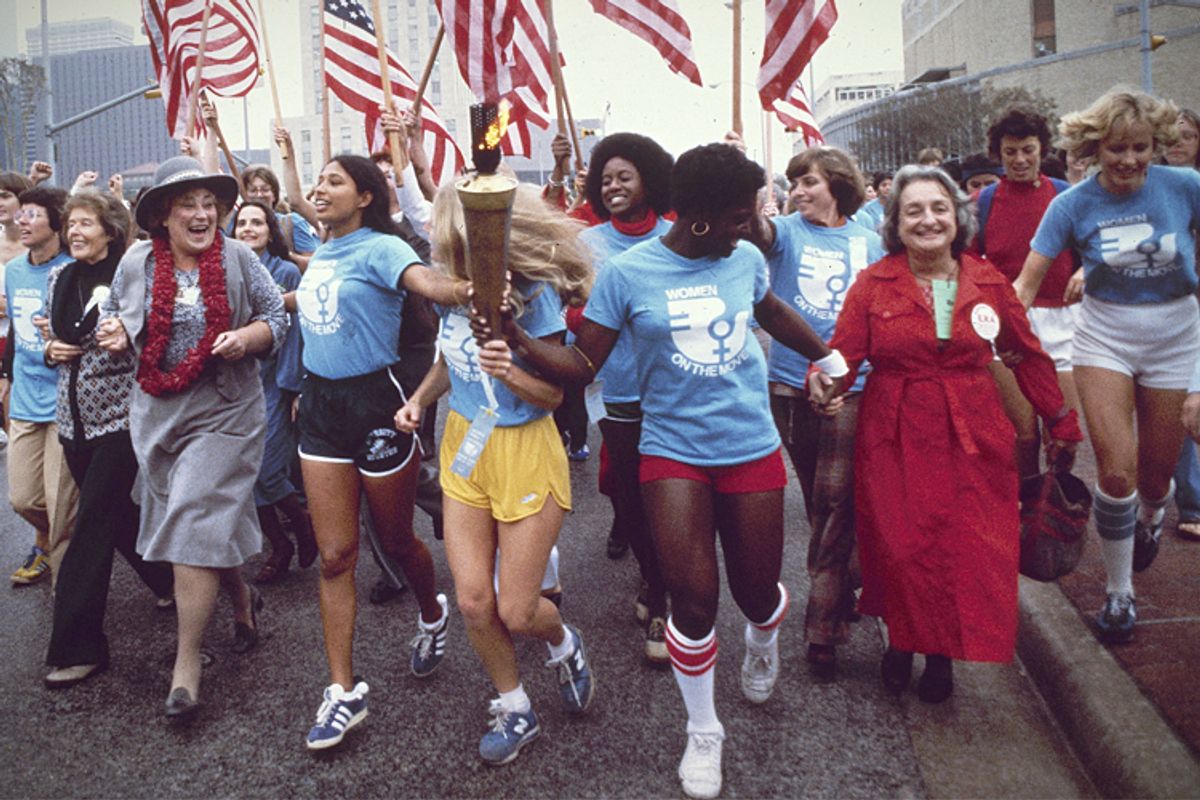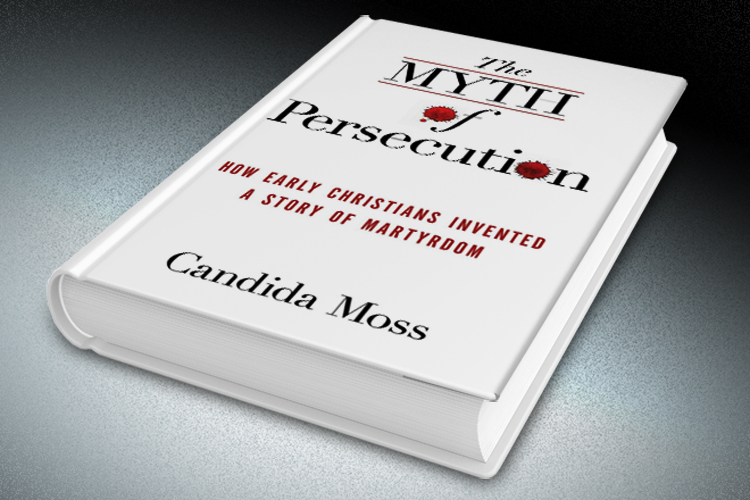BOOKS
Laura Miller dug into Candida Moss' scholarly work on Christianity's obsession with martyrdom, titled "The Myth of Persecution: How Early Christians Invented a Story of Martyrdom." She writes:
"Moss is thorough, strives for clarity and is genuinely fired up in her concern for the influence of the myth of martyrdom on Western societies. 'The idea of the persecuted church is almost entirely the invention of the 4th century and later,' she writes. This was, significantly, a period during which the church had become 'politically secure,' thanks to Constantine. Yet, instead of providing a truthful account of Christianity’s early years, the scholars and clerics of the fourth century cranked out tales of horrific, systemic violence. These stories were subtly (and not so subtly) used as propaganda against heretical ideas or sects. They also made appealingly gruesome entertainment for believers who were, personally, fairly safe; Moss likens this to contemporary suburbanites reveling in a horror film."
Kyle Minor is our Listener columnist this week, the final week of Pope Benedict XVI's term, and what better time to consider Garry Wills' "Why Priests?: A Failed Tradition":
"If you’re expecting a polemic, you might get a quiet one, but you won’t get much in the way of bombast or grandstanding. Wills is a scholar, and his opposition is rooted in a position firmly inside the church. The book is dedicated to the memory of a priest, Henri de Lubac, S.J., and it begins with a long appreciation of the priests Wills has known and loved in a professional lifetime of reading and writing about religion, which itself began in a Jesuit seminary, where Wills studied for five years in hopes of becoming a priest … There are two kinds of readers or listeners who might spend some time with 'Why Priests?' — those who know quite a lot about Roman Catholicism and those who don’t — and Wills takes great care to be respectful of the intelligence of both. To the already knowledgeable reader, he offers an analysis that doesn’t shy away from the historical arcana upon which the rituals and practices of the church turn, and to the less-informed reader, he offers a clear, thorough and concise explanation of the vocabulary of Catholic theology and practice, which turns out to be an aid to the knowledgeable reader as well, because in his attempt to be clear, he ties each explanation to its special history, and shows how many of the ideas and practices that contemporary Catholics take for granted survive in forms very different from what they might have been in the time and place in which they originated."
MOVIES
Andrew O'Hehir indulges one of his favorite genres — the submarine thriller — in his Pick of the Week, titled "Phantom," which stars David Duchovny and Ed Harris as Russians, in a story based on a real, mostly forgotten historical event:
"Even given its overly familiar story about a Soviet sub going rogue at a moment of heightened Cold War tension, writer-director Todd Robinson’s 'Phantom' has a pulpy B-movie intensity and economy to match its cast of quality character actors … The story of “'Phantom' is no more than an intriguing possibility, with all the inherent drama, terror and claustrophobia of the submarine genre baked into it. I’ll admit I’m a fan of the sub movie, which for understandable reasons isn’t everybody’s thing: No women, confined spaces, challenging and often cheesy special effects … The basic plot … is one that recurs in numerous military thrillers set during the Cold War: Will the crazy people bring us to Armageddon before the sane people can head them off? Viewed from one angle there’s no drama to this question 40-odd years later, but from another it remains unanswered. In this classy, taut white-knuckler – largely shot inside a real-life decommissioned Soviet sub – Robinson asks us to consider more than the hypothetical possibility that the world nearly ended in 1968. He reminds us that we have no idea how many other near-misses may have happened in the behind-the-scenes history of the modern age and also, more troubling still, that long after the Cold War has faded into memory we continue to have difficulty telling the crazy people from the sane ones."
TELEVISION
Willa Paskin had high hopes for HBO's miniseries "Parade's End," based on the four-book series by Ford Madox Ford, and adapted for the screen by Tom Stoppard:
"Having just thrown up my hands at 'Downton' and all its manipulations and stupidity, 'Parade’s End' would seem to be a welcome antidote: a complicated, intellectual, yet gossipy period piece. But watching 'Parade’s End' is — presumably as intended — a very near experience to reading 'Parade’s End' — there are beautiful moments, images, and lines, but there is an overwhelmingly opaque, foggy quality, a sense of having to peer in very attentively to comprehend what is going on. That can be an enjoyable feeling in a book: you put it down, you pick it up, newly clear-eyed and focused each time. But in enforced hour-long sittings, 'Parade’s End' washes over you, unexamined, too much. There is a beautiful scene in the first episode when Tietjens and Valentine get lost in a heavy fog, and her face suddenly emerges beneath his — in an instant, he sees her clear. If nearly anything else in 'Parade’s End' were so crystalline, it would be much more pleasurable."
Irin Carmon watched "Makers," the PBS doc about the feminist revolution:
"The story begins where most everyone would expect it to, with 'The Feminine Mystique,' the ennui of white, educated suburban women, Betty Friedan launching it all. (Even as her homophobia and other severe limitations are called out, you have to feel for the deceased Friedan when the camera slowly pans from her, sitting exhaustedly at the edge of the table, to introduce a cigarette-laced, effortlessly charismatic Gloria Steinem at the other end of the table.) But it doesn’t stop there: Black women — particularly Rep. Eleanor Holmes Norton — give voice to the general inapplicability of the problems of the suburban, single-earner households to the longtime realities of their lives. Lesbians talk of being openly shut out of the movement for fear they would hurt its image. Phyllis Schlafly, a woman identified as a “homemaker/writer,” and Fox News commentator Monica Crowley rep for right-wing women and their hostility to the f-word … Watching the documentary, it suddenly seems starkly clear that the most profound unresolved conflict of women’s progress is not all of the competing struggles of identity, although they obviously matter, but an ambivalence about traditional female roles and activities. That ambivalence lies at the heart of unresolved questions about motherhood, the pleasures or pains of domesticity and fashion, sexuality and “objectification,” the persistence of “pink ghetto” jobs held by women — whether they’re being rejected, embraced or reclaimed. (Interestingly, the often-bitter battles over pornography and other forms of paid sex work, for example, are hardly mentioned, unless you count Madonna and the picketing of the Miss America pageant.) And too often, this ambivalence is dispatched with a pat assertion that feminism is about women making choices, so all choices are good. It’s beyond the documentary’s provenance to solve these disputes, but it provides plenty of fodder to examine them."






Shares